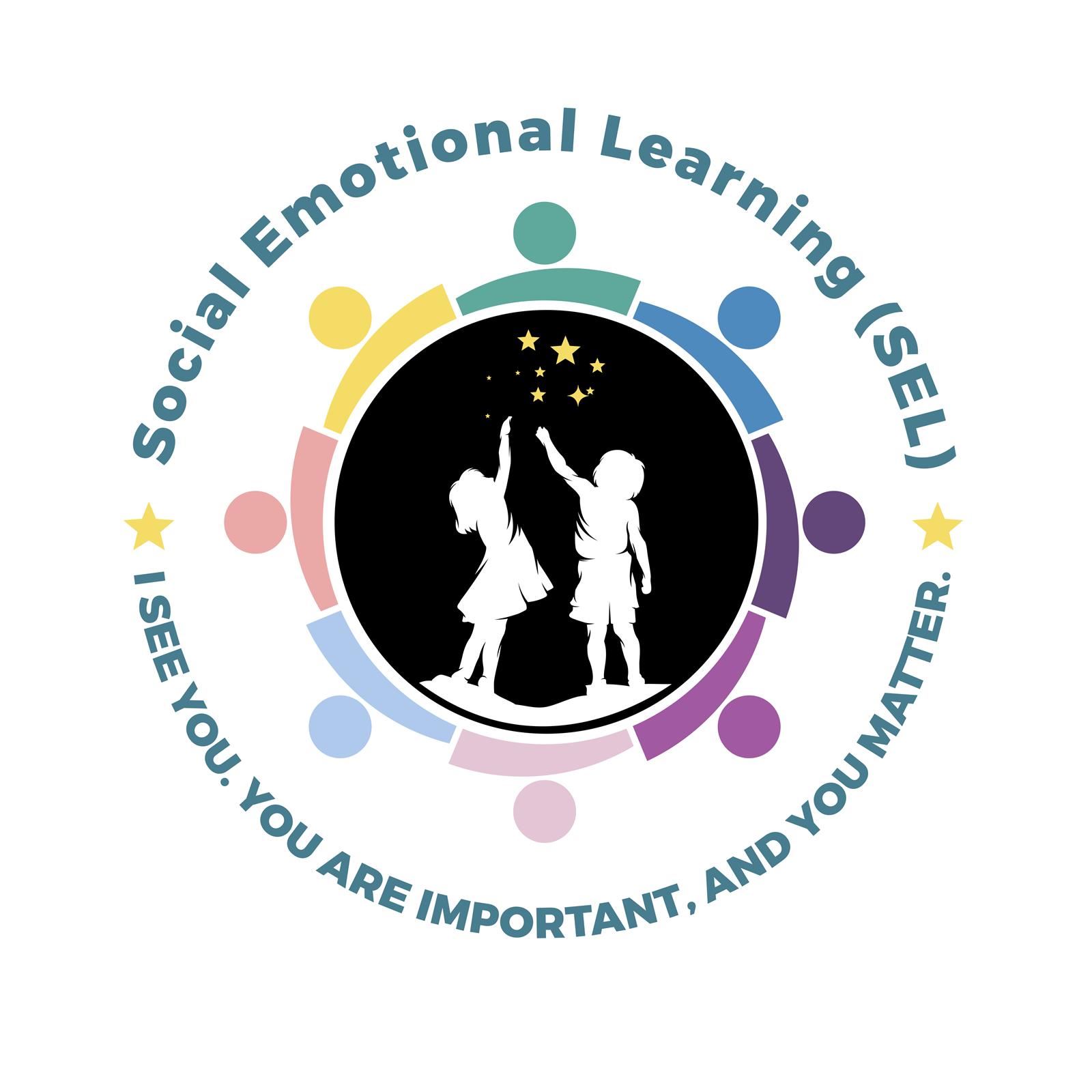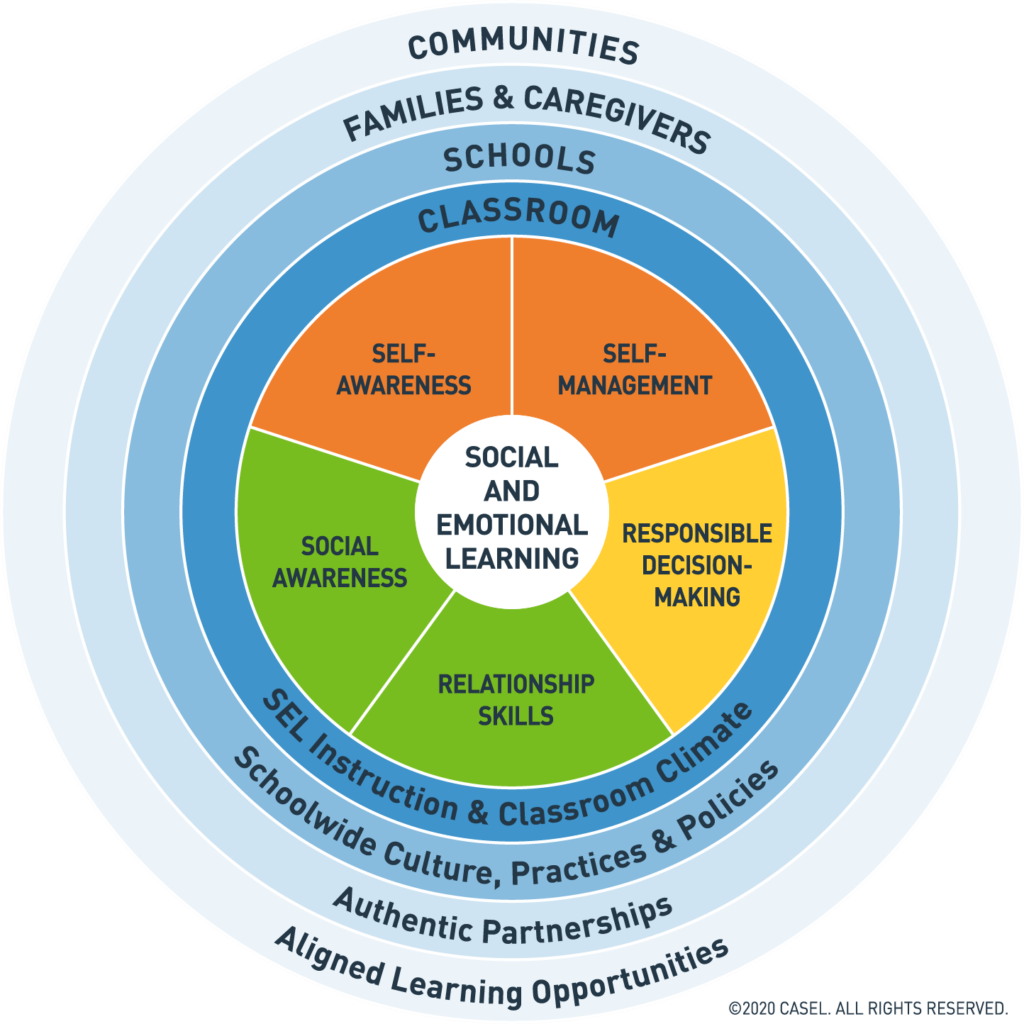New SEL Section (Inactive)
Page Navigation
-

The Fullerton School District (FSD) views Social-Emotional Learning (SEL) as an integral part of education and human development. SEL is the process through which all young people and adults acquire and apply the knowledge, skills, and attitudes to develop healthy identities, manage emotions and achieve personal and collective goals, feel and show empathy for others, establish and maintain supportive relationships, and make responsible and caring decisions. FSD is committed to advancing SEL and excellence through authentic school-family-community partnerships to establish learning environments and experiences that feature trusting and collaborative relationships, rigorous and meaningful curriculum and instruction, and ongoing evaluation.
-
Benefits of SEL
- We know from a large body of research on SEL that high-quality SEL programming leads to improved academic performance, decreases in anxiety and behavior issues, among other benefits.
- We also know from research beyond the traditional SEL field that there are additional insights to be gained that are relevant to SEL.
Collaborative for Academic, Social, and Emotional Learning (CASEL) Framework
 The Fullerton School District uses the framework developed by the Collaborative for Academic, Social, and Emotional Learning (CASEL) as a foundation for Social-Emotional Learning. CASEL is a trusted source for knowledge about high-quality, evidence-based social-emotional learning (SEL).
The Fullerton School District uses the framework developed by the Collaborative for Academic, Social, and Emotional Learning (CASEL) as a foundation for Social-Emotional Learning. CASEL is a trusted source for knowledge about high-quality, evidence-based social-emotional learning (SEL).
CASEL’s SEL framework fosters knowledge, skills, and attitudes across five areas of competence and multiple key settings to establish equitable learning environments that advance students’ learning and development.
-
The Fullerton School District uses the Second Step® program to teach social-emotional skills to all students. This research-based, universal social-emotional learning (SEL) program is designed to strengthen students’ social-emotional skills, such as emotion management, impulse control, problem-solving, and empathy. Studies show these skills can help improve academic performance, reduce negative social behaviors like bullying, and create more positive classroom and school climates.


